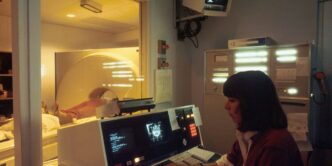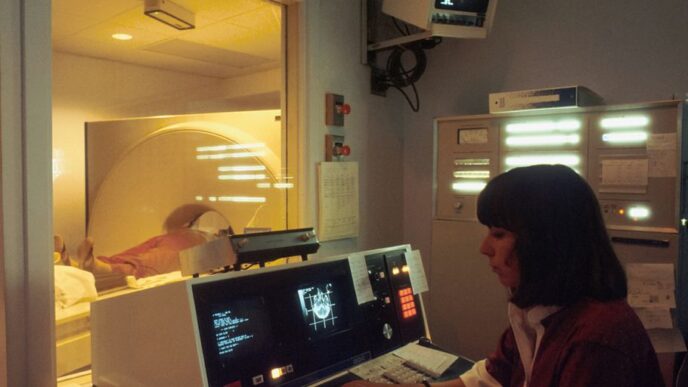Thinking about a career change or looking to add a new skill to your resume? Healthcare recruiter jobs might be just the ticket. The healthcare industry is booming, and it’s always looking for good people. This means there are plenty of opportunities for recruiters who can connect talented professionals with the right roles. It’s a field where you can really make a difference and, honestly, make pretty good money too. Let’s explore what it takes to succeed in this growing area.
Key Takeaways
- The healthcare industry is growing fast, creating a constant need for skilled workers and, therefore, for recruiters to find them.
- Success in healthcare recruiting often comes down to strong communication, a competitive spirit, and a willingness to work hard.
- You can choose to work for a healthcare organization, join a staffing agency, or go independent, each offering different benefits.
- Specializing in a particular area of healthcare helps you stand out and build trust with both candidates and employers.
- Using technology like applicant tracking systems and specialized platforms can make your recruiting process much more efficient and boost your earnings.
Understanding the Healthcare Recruiting Landscape
So, you’re thinking about getting into healthcare recruiting? That’s a smart move. The healthcare industry is booming, and it’s always looking for good people. Think about it: hospitals, clinics, doctor’s offices – they all need staff, from nurses and doctors to administrative folks and specialists. The demand for these professionals has only gone up, especially after everything that happened recently. It’s created a real shortage, and that’s where recruiters like us come in.
Healthcare recruiting is a field where you can really make a good living. It’s not just about filling jobs; it’s about connecting the right talent with the right organizations. When you do that well, you’re helping both the professionals find great careers and the healthcare facilities get the help they need to take care of people. It’s a win-win, and honestly, the earning potential can be pretty impressive.
The Growing Demand for Healthcare Professionals
The healthcare sector is the fastest-growing industry in the United States. This means there are always jobs opening up. We’re talking about thousands of positions that need filling across the country. The pandemic really highlighted how important healthcare workers are, but it also made the existing shortage of staff much worse. Many places are struggling to find new people and keep the ones they have.
Why Healthcare Recruiting is a Lucrative Field
If you’re good at finding people and making connections, healthcare recruiting can be very rewarding financially. You’re essentially solving a big problem for healthcare organizations – the lack of qualified staff. When you successfully place a candidate, especially in a hard-to-fill role, the compensation can be quite good. It’s a field where your hard work directly translates into earning potential, and there’s a lot of room to grow.
Navigating Talent Shortages in Healthcare
Dealing with talent shortages is a daily reality in healthcare recruiting. It means you can’t just post a job and wait for people to apply. You have to be proactive. This involves actively searching for candidates, reaching out to them directly, and building relationships. It requires a deep understanding of what makes different healthcare roles unique and what kind of people are best suited for them. Being able to identify and connect with these in-demand professionals is key to success in this market.
Essential Qualities for Healthcare Recruiters

So, you’re thinking about jumping into healthcare recruiting? That’s cool. It’s a field that’s always busy, and honestly, it can be pretty rewarding if you’ve got the right stuff. It’s not just about finding people jobs; it’s about connecting the right talent with places that really need them, especially with how things are now. You’ll be talking to a lot of different people, from nurses to doctors to therapists, and you need to be good at it. Think of it like being a matchmaker, but for careers in hospitals and clinics.
Exceptional Communication and Interpersonal Skills
This is probably the biggest one. You’re going to be on the phone a lot, maybe making over a hundred calls a day. You need to be comfortable chatting with anyone, whether it’s a seasoned surgeon or a new grad nurse. It’s not just talking, though; it’s listening too. You’ve got to really hear what people are looking for in their next job, what their skills are, and what kind of environment they want to work in. Plus, you’ll be emailing and texting, so being clear and friendly in writing is important too. If you’re someone who genuinely likes talking to people and can remember details about them, you’re already ahead of the game. It helps a ton when you can recall a candidate’s specific needs or a client’s particular requirements without having to dig through notes every single time. It makes people feel like you’re really paying attention.
The Importance of a Competitive and Resilient Mindset
Let’s be real, this job can be tough. You’ll have days where things just don’t pan out, maybe a candidate you really liked doesn’t get the job, or a client changes their mind last minute. It happens. That’s where resilience comes in. You can’t let those setbacks get you down. You need to be able to shake it off and keep going. Think of it like playing a sport; you win some, you lose some, but you always get back up for the next game. A competitive streak helps too. You want to be the one who finds that perfect candidate, who fills that tough-to-fill role. It’s about pushing yourself and wanting to do better than the last time, and maybe even better than the next recruiter. It’s a good feeling when you beat the odds and make a great placement.
Diligence and a Work-Hard, Play-Hard Attitude
This job isn’t a 9-to-5, Monday-to-Friday gig if you want to do really well. Healthcare professionals often work odd hours, and they might need to talk to you when it’s convenient for them, which isn’t always during normal business hours. So, you’ll likely be working more than 40 hours a week sometimes, whether you’re in the office or working from home. You have to be willing to put in the effort to build relationships and find the right people. But it’s not all work and no fun. Most places that do this kind of recruiting know that people need breaks. They often have team events, maybe a break room with games, or even company trips. The idea is that when you work hard and put in the time, you get to enjoy the rewards. It’s about finding that balance so you don’t burn out.
Choosing Your Path in Healthcare Recruitment
So, you’ve decided healthcare recruiting is the path for you. That’s awesome! But where do you actually start? It’s not like there’s just one way to do this. Think of it like choosing a specialty in medicine – you’ve got options, and picking the right one can make all the difference in your career.
Internal Recruiting Roles Within Healthcare Organizations
This is where you become part of the team, so to speak. You’d be working directly for a hospital, a clinic, or maybe a larger healthcare system. Your main job is to find people to fill the openings within that specific organization. It’s like being the in-house talent scout for a hospital. You get to know the company culture really well, understand their specific needs, and build relationships with the hiring managers. It can be pretty stable work, and you’re directly contributing to the success of one place.
Joining a Healthcare Staffing Agency
If you like variety and working with different clients, a staffing agency might be more your speed. These agencies partner with various healthcare facilities that need help finding staff. You’ll be recruiting for multiple organizations at once, which means you’ll see a wider range of roles and challenges. It’s a fast-paced environment, and you’ll likely be working on filling urgent needs. Agencies often provide training and support, which can be a big plus when you’re starting out or looking to expand your skills.
The Benefits of Independent Healthcare Recruiting
This route is for the go-getters, the ones who want to be their own boss. As an independent recruiter, you set your own hours, choose which clients to work with, and decide which roles to focus on. You’re essentially running your own small business. It offers a lot of freedom, but it also means you’re responsible for everything – finding clients, marketing yourself, and managing your own finances. Building a strong network and a good reputation is key here, as much of your business will likely come from referrals. It can be incredibly rewarding, both financially and in terms of flexibility, but it definitely requires a lot of self-discipline and entrepreneurial spirit.
Developing Your Expertise in Healthcare Jobs
Getting good at healthcare recruiting means really knowing your stuff. It’s not just about finding people; it’s about understanding the whole picture of the healthcare world. This field is always changing, and if you want to be the go-to person for jobs, you need to know the details.
Identifying Your Niche Within Healthcare
Think of it like this: you wouldn’t go to a general doctor for heart surgery, right? Same idea here. Healthcare is huge, with so many different areas. Trying to recruit for everything means you won’t be great at anything. Instead, pick a specific area, like nursing, or maybe a certain type of therapy, or even a particular medical specialty like cardiology. Once you pick your focus, really dig in. Learn what the day-to-day work looks like for those professionals, what kind of places they work in (hospitals, clinics, private practices), and what skills and certifications they absolutely need. Knowing the jargon and the latest trends in your chosen area makes you look like you know what you’re talking about, and candidates will trust you more. It also helps you spot the best matches for jobs. If you don’t have direct healthcare experience, that’s okay. Just pick one or two areas and become an expert. This will help you connect better with people and make more successful placements. Your specialty can even become part of your personal brand.
Understanding Key Healthcare Roles and Requirements
When you’re talking to candidates or clients, you need to speak their language. This means knowing the specifics of different healthcare jobs. For example, a Registered Nurse (RN) role will have different requirements than a Certified Nursing Assistant (CNA) or a specialized surgeon. You need to be clear on:
- Job duties and responsibilities: What does the person actually do all day?
- Work setting: Is it a busy hospital ER, a quiet doctor’s office, or a long-term care facility?
- Required skills and licenses: What certifications, degrees, and licenses are non-negotiable?
- Experience level: Are they looking for someone fresh out of school or a seasoned pro?
- Typical challenges: What are the common difficulties faced in that role?
Being able to explain these details clearly shows you’ve done your homework. It helps candidates understand if a job is a good fit and helps employers see why your candidate is the right choice. You can find a lot of information about specific roles and requirements on sites that list jobs, like healthcare job boards.
Building Credibility Through Specialized Knowledge
In a competitive market, having specialized knowledge is what sets you apart. It’s about more than just knowing job titles; it’s about understanding the nuances of the healthcare industry. This includes knowing about:
- Compensation structures: How are healthcare professionals paid? What are common benefits packages?
- Technology and software: What EMR (Electronic Medical Record) systems or other software are commonly used in different practices?
- Work schedules: Healthcare often has unusual hours, like night shifts or weekend rotations. Can you find people for those specific needs?
- Industry trends: What’s happening in healthcare right now? Are there new treatments or technologies that affect hiring needs?
When you can talk intelligently about these things, you build trust. Candidates see you as someone who understands their world and can help them find opportunities that truly align with their career goals and lifestyle. This deep knowledge also helps you advocate for your candidates, perhaps negotiating better pay or benefits because you know what’s standard and what’s exceptional in their field. It makes you more than just a go-between; it makes you a trusted advisor.
Leveraging Technology for Healthcare Recruiter Success
In today’s fast-paced world, recruiters need every advantage they can get, and technology is definitely the place to find it. Relying solely on old methods like posting jobs and hoping for the best just doesn’t cut it anymore, especially in healthcare where the need for skilled people is so high. You really have to be proactive.
Think about how much time you spend just looking for people. Some recruiters spend over 15 hours a week on this alone! That’s a huge chunk of your day that could be spent talking to candidates or closing a deal. Using the right digital tools can seriously cut down on that sourcing time. You can find and message people who are a good fit much faster. Plus, setting up alerts for new job seekers entering the market means you’re always in the loop.
Keeping track of everyone is another big one. You need a system to know who you’ve contacted, whose resume you’ve sent, and who’s interviewed. A messy or slow system means good candidates can slip through the cracks, and that directly impacts how much money you can make. It’s all about being efficient.
Here are some ways technology can help you out:
- Streamlining Candidate Sourcing: Use advanced search filters to pinpoint exactly the kind of healthcare professionals you need. Think about searching by specific skills, certifications, or even experience with certain medical software.
- Utilizing Applicant Tracking Systems (ATS): A good ATS is like your digital filing cabinet. It helps you organize candidate information, track their progress through the hiring process, and manage communications. This way, you don’t lose track of anyone.
- Dedicated Recruiting Platforms: These platforms often combine sourcing, communication, and tracking all in one place. They can help you manage multiple job openings across different facilities, post jobs with clear details about hours and duties, and even track how many people view your job postings.
The goal is to let technology handle the repetitive tasks so you can focus on building relationships and making placements.
Building Your Personal Brand in Healthcare Recruiting
So, you’re looking to make your mark in healthcare recruiting. That’s smart. It’s a field with serious demand, but also a lot of people trying to do the same thing. How do you get noticed? It all comes down to your personal brand. Think of it like this: you’re not just filling jobs; you’re building a reputation as the go-to person for specific healthcare talent. This means showing people what you’re about, what you know, and why they should trust you.
First off, you need to figure out what makes you different. Healthcare is huge, right? Trying to recruit for everything is like trying to drink from a firehose. Instead, pick a lane. Maybe you’re amazing at finding travel nurses, or perhaps you have a knack for placing specialized therapists. Whatever it is, own it. Knowing your niche inside and out is the bedrock of your personal brand. When you can talk the talk about specific roles, certifications, and even the day-to-day challenges of a particular healthcare job, people notice. They see you as someone who gets it, not just someone sending out generic job blasts.
Here’s a quick way to think about building that brand:
- Define your specialty: What area of healthcare are you focusing on? (e.g., ER nurses, pediatric oncologists, medical lab technicians).
- Know the details: Understand the typical duties, required licenses, and common work settings for your chosen specialty.
- Show your value: How do you help candidates and clients? Do you find better-paying jobs? Do you help facilities fill critical roles faster?
Once you’ve got that down, you need to get the word out. Your LinkedIn profile is probably your biggest billboard. Make sure it reflects your specialty and your successes. Share articles about your niche, comment on industry posts, and connect with people in the field. It’s about being visible and providing value. Think about it: if a doctor needs a new position, are they going to trust a recruiter who seems to know a little about everything, or one who has a proven track record and deep knowledge in their specific medical field? It’s a no-brainer.
Also, don’t forget to be a champion for the people you work with. The healthcare world is tough, and turnover is high. If you can show that you understand the challenges and are actively working to find solutions – like advocating for better benefits or more training opportunities – that builds serious trust. People will remember that you had their back. This kind of advocacy turns good candidates into loyal contacts and, eventually, a strong referral network. It’s not just about making a placement; it’s about building relationships and making a real difference.
The Rewards of a Healthcare Recruiter Career
So, you’re thinking about a career in healthcare recruiting? That’s smart. It’s a field where you can really make a difference, and honestly, the money can be pretty good too.
Think about it: the healthcare industry is always growing, and there’s a constant need for skilled people, from nurses and doctors to therapists and technicians. The pandemic really highlighted how important these roles are, and it also made it tougher for hospitals and clinics to find the right staff. That’s where you come in.
Being a healthcare recruiter means you’re the bridge connecting talented professionals with organizations that desperately need them. It’s not just about filling a spot; it’s about finding the best fit for both the candidate and the employer. And when you nail it, the rewards are definitely worth the effort.
Here’s a look at what makes this career path so appealing:
Unlimited Earning Potential and Financial Perks
Forget about hitting a salary ceiling. In healthcare recruiting, your income is often tied to your performance. Many roles, especially in staffing agencies or as an independent recruiter, work on a commission basis. This means you get paid when you successfully place a candidate. While it can take a little while to get paid after a placement (sometimes 30-60 days after the candidate starts), the potential to earn significantly more than a base salary is real. Some recruiters even get paid bonuses for referring candidates who get hired, which is a nice extra.
Opportunities for Professional Development and Growth
This isn’t a job where you just do the same thing every day. You’ll constantly be learning about different healthcare roles, what skills are needed, and how to find the best people. You can specialize in a particular area, like nursing or allied health, or become a generalist. Many companies offer training programs to get you up to speed, and as you gain experience, you can move into leadership roles or even start your own recruiting business. Plus, you’ll develop strong communication, negotiation, and problem-solving skills that are useful in any career.
Making a Meaningful Impact on Healthcare Staffing
This is more than just a job; it’s a chance to contribute to a vital industry. By finding and placing qualified healthcare professionals, you’re helping to ensure that people receive the care they need. You’re helping hospitals stay staffed, clinics run smoothly, and patients get better. When you connect a great nurse with a hospital that needs them, or help a therapist find a role where they can make a real difference, that’s incredibly satisfying. You’re directly impacting people’s lives and the health of communities.
Ready to Make Your Move?
So, if you’re thinking about a career change or looking to add a really solid skill to your resume, healthcare recruiting is definitely worth a look. The industry is booming, and good recruiters are always in demand. Whether you want to work for a big hospital, a staffing company, or even go out on your own, there are paths for everyone. It takes some hustle, good people skills, and maybe a bit of a competitive streak, but the rewards can be pretty great. Plus, with the right tools and a focus on building relationships, you can really make a name for yourself and find success on your own terms. It’s a field where you can genuinely help people find jobs they love while building a great career for yourself.
Frequently Asked Questions
What does a healthcare recruiter do, and why is it a good job?
Healthcare recruiting means helping hospitals and clinics find the right people to fill jobs. Think of it like being a matchmaker for jobs and people. The healthcare field is growing super fast, and there’s a big need for doctors, nurses, and other health workers. Because of this, recruiters who are good at finding these people can make a lot of money.
What skills do I need to be a successful healthcare recruiter?
To be a great healthcare recruiter, you need to be a good talker and listener. You’ll be on the phone a lot, so being friendly and clear is important. You also need to remember details about different people and jobs. Having a competitive spirit helps you want to find the best candidates, and being able to bounce back when things don’t work out is key. Lastly, working hard and being organized will lead to success.
What are the different ways I can work as a healthcare recruiter?
You have a few main choices. You can work directly for a hospital or clinic as their in-house recruiter. Another option is to join a staffing agency that specializes in healthcare jobs. Some people also choose to work for themselves as independent recruiters, which gives you more freedom.
How can I become an expert in healthcare recruiting?
It’s smart to focus on a specific area within healthcare, like finding nurses or specialists. Learn as much as you can about those roles, what skills are needed, and what the daily work is like. Knowing the industry terms and current trends makes you look like an expert and helps you connect better with candidates and employers.
How can technology help me as a healthcare recruiter?
Using technology can save you a lot of time. There are special computer programs called Applicant Tracking Systems (ATS) that help you keep track of all the people you talk to. Other online tools can help you find potential candidates more easily. Using these tools helps you work faster and find more jobs for people.
How can I build a strong personal brand as a healthcare recruiter?
Building your own reputation, or ‘personal brand,’ helps you stand out. Share what makes you good at recruiting and why people should trust you. This can involve using social media or networking events to connect with people. When people know and trust you, they’re more likely to come to you for job opportunities or refer others.














